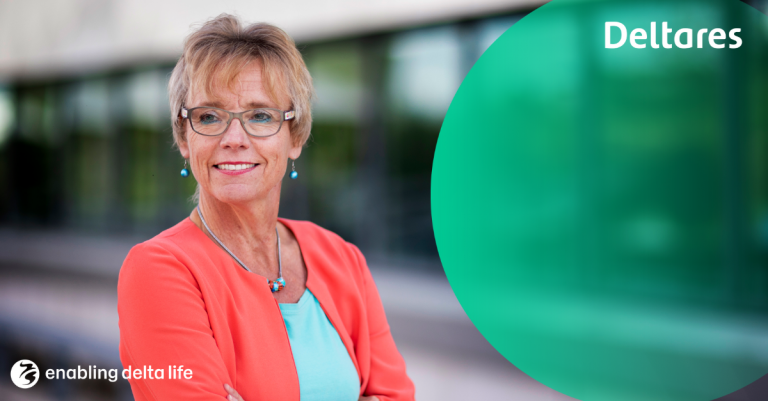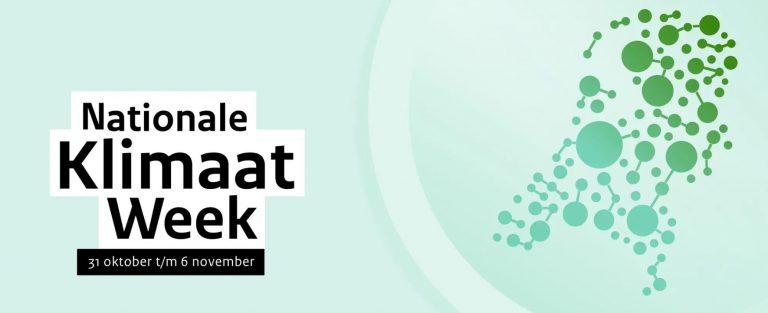What can I still do about the climate legacy?
This week is National Climate Week. In my new blog I will discuss the climate heritage. Each generation receives a legacy from the previous one: arisen through ignorance, inability, powerlessness and unwillingness. The younger generations hold me accountable for the lack of progress, our greed and far too large a CO2 footprint. I feel partly responsible for the immense consequences that my children and grandchildren bear and the task they face. I often wonder what else I can do, other than reduce my own CO2 footprint.

For over 30 years, I have been working on the environment, spatial planning, soil and water management. Always with full conviction: the soil remediation operation in the 1990s, the foresight studies at the National Planning Service, the innovations in hazardous substance risk policy after the Enschede firework disaster and the start-up of the Delta Programme. The other day, someone asked me when I became aware of the impact of climate change.
I lived in Deventer in 1993 and 1995: the water poured over the IJsselkade in those years, our basement did not stay dry, and our family in Canada saw the images of mass evacuations in the Betuwe.
Years later, working in The Hague, I heard Jan Pronk’s impassioned speech in the Council of Ministers on Climate Change, loss of biodiversity and resource scarcity as existential threats to humanity.
And now, as a 55-and-over, I find myself facing angry, desperate young people who berate me about the lack of progress, our greed and far too big a footprint. They wonder why I am saddling them with this legacy.
They are right: the scientists were clear, politicians seemed ready for action 30 years ago, and environment was a respected and challenging field when I graduated. But anyone reading the papers today can find not much that is positive around nature, biodiversity, water quality and climate. Of course, this is not the full picture. In the 30 years I have been working, we have remediated the soil, improved safety in handling hazardous substances, improved water, soil and air quality, tackled acid rain and the hole in the ozone layer, eliminated chlorinated pesticides and made major achievements in waste collection and separation. But it still feels a bit as if we are sanding and varnishing the railing of the Titanic. Did I get main and secondary issues right? And do I still have enough time now to do something about the climate legacy? What can I still do about the climate legacy?
I reminisce about conversations with my grandfather: teacher of biology, history and art history. I was just starting work and was very worried about soil. With every survey, we found more soil contamination. Everywhere, the soil had been used as a waste vessel for gas plants, petrol stations, chemical laundries, refineries and metal processing industries. I was angry and wondered what my ancestors had been up to. Even when there had long been insights that it could have major implications for our drinking water, the discharges and dumping had continued. Why had we been saddled with this legacy? My grandfather remained calm under my reproaches and spoke: ‘Every generation gets a legacy from the previous one: created through ignorance, inability, powerlessness and unwillingness. Just assume that you, with your commitment to doing good, will also be called to account at some point. The best thing you can do is invest in the moral compass and innovative capacity of the next generation. Even if you don’t know what they will have to do later, make sure they are capable of doing it.’
They were prophetic words: I helped clean up the environmental legacy of the ’60s-’70s, but I am partly responsible for the immense task that my children and grandchildren will have to bear the brunt of.
What can I still do now, apart from reducing my own footprint?
I will work to raise awareness about the impact of climate change. With knowing comes responsibility. We cannot tell, teach and translate enough: from the immense story to everyday life.
I will also work on perspective and action: what can we do, how can we prepare, what is the perspective we want to work towards? My inspirational sources in leadership have one thing in common: they connect a clear dream for the future with a conviction that it is achievable, perseverance and patience as well as a great love for people.
But above all, I will do all I can to give young people more space, time and influence. The best thing I can still do about the climate legacy is to build a well-cooperating, smart, creative, diverse and ethically driven community of young people who can take charge of their own future. I am lucky to be able to help shape that at the wonderful knowledge organisation Deltares with many bright minds, young and older. Water management and a robust groundwater system are more important than ever, requiring us to think far ahead with all our knowledge. We are lucky to be able to do that in a knowledge community, together with everyone in the Netherlands who cares, from students and professors to market parties. I am proud of our joint initiative Rethink the Delta. We have an ultimate goal: to work together on the unchartered future, with hope and confidence.

